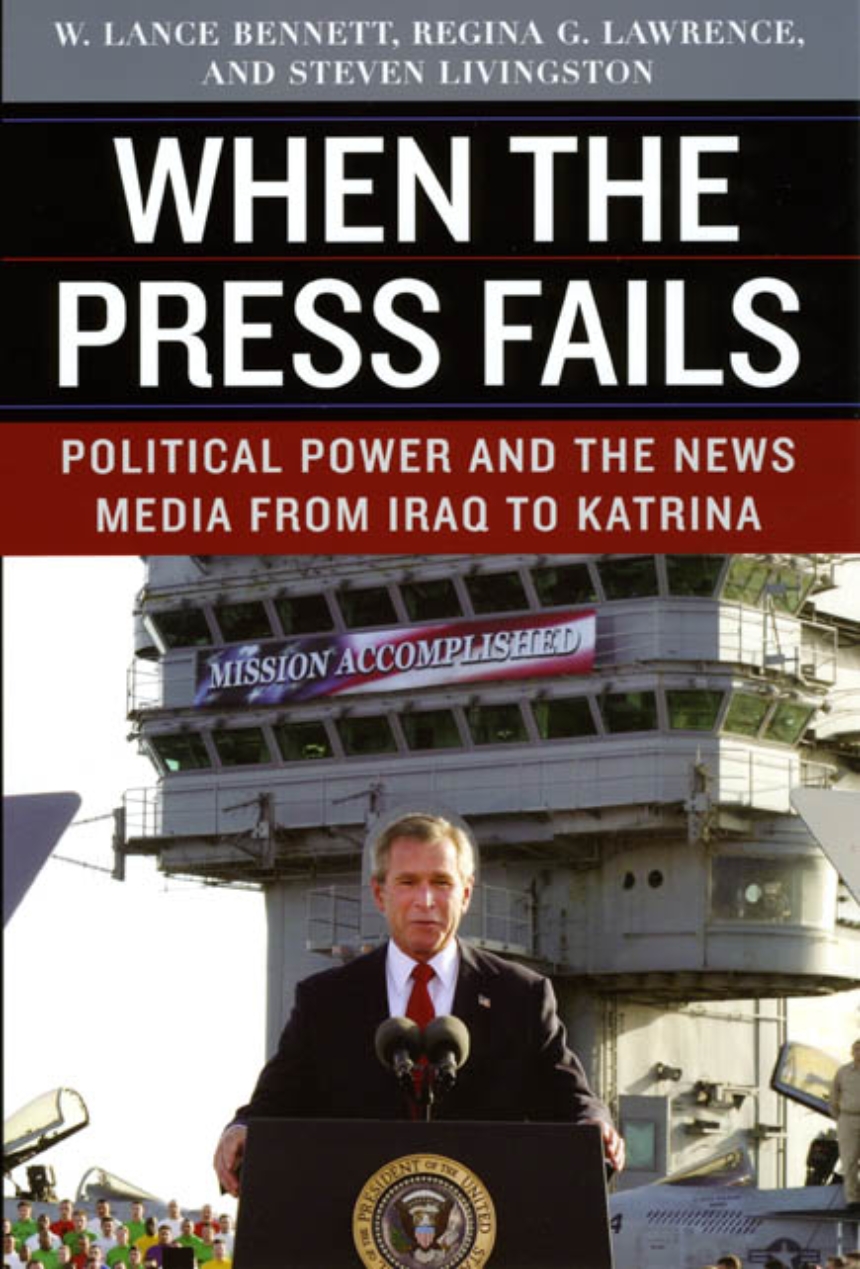When the Press Fails
Political Power and the News Media from Iraq to Katrina
9780226042855
9780226042862
When the Press Fails
Political Power and the News Media from Iraq to Katrina
A sobering look at the intimate relationship between political power and the news media, When the Press Fails argues the dependence of reporters on official sources disastrously thwarts coverage of dissenting voices from outside the Beltway.
The result is both an indictment of official spin and an urgent call to action that questions why the mainstream press failed to challenge the Bush administration’s arguments for an invasion of Iraq or to illuminate administration policies underlying the Abu Ghraib controversy. Drawing on revealing interviews with Washington insiders and analysis of content from major news outlets, the authors illustrate the media’s unilateral surrender to White House spin whenever oppositional voices elsewhere in government fall silent. Contrasting these grave failures with the refreshingly critical reporting on Hurricane Katrina—a rare event that caught officials off guard, enabling journalists to enter a no-spin zone—When the Press Fails concludes by proposing new practices to reduce reporters’ dependence on power.
“The hand-in-glove relationship of the U.S. media with the White House is mercilessly exposed in this determined and disheartening study that repeatedly reveals how the press has toed the official line at those moments when its independence was most needed.”—George Pendle, Financial Times
“Bennett, Lawrence, and Livingston are indisputably right about the news media’s dereliction in covering the administration’s campaign to take the nation to war against Iraq.”—Don Wycliff, Chicago Tribune
“The hand-in-glove relationship of the U.S. media with the White House is mercilessly exposed in this determined and disheartening study that repeatedly reveals how the press has toed the official line at those moments when its independence was most needed.”—George Pendle, Financial Times
“Bennett, Lawrence, and Livingston are indisputably right about the news media’s dereliction in covering the administration’s campaign to take the nation to war against Iraq.”—Don Wycliff, Chicago Tribune
“[This] analysis of the weaknesses of Washington journalism deserves close attention.”—Russell Baker, New York Review of Books
Read an excerpt.
280 pages | 3 line drawings, 5 tables | 6 x 9 | © 2007
Studies in Communication, Media, and Public Opinion
Political Science: American Government and Politics, Political Behavior and Public Opinion
Reviews
Table of Contents
Preface
Acknowledgments
INTRODUCTION
The Press and Power
The Press and Power
1
PRESS POLITICS IN AMERICA
The Case of the Iraq War
2
THE SEMI-INDEPENDENT PRESS
A Theory of News and Democracy
3
NONE DARE CALL IT TORTURE
Abu Ghraib and the Inner Workings of Press Dependence
4
THE NEWS REALITY FILTER
Why It Matters When the Press Fails
5
MANAGING THE NEWS
Spin, Status, and Intimidation in the Washington Political Culture
6
TOWARD AN INDEPENDENT PRESS
A Standard for Public Accountability
APPENDIX A
Evidence Suggesting a Connection
between Abu Ghraib and U.S. Torture Policy
APPENDIX B
Methods for Analyzing the News Framing of Abu Ghraib
APPENDIX C
Further Findings from the Content Analysis
APPENDIX D
Interview Protocol
Notes
References
Index
Awards
American Political Science Association: Doris Graber Outstanding Book Award
Won
